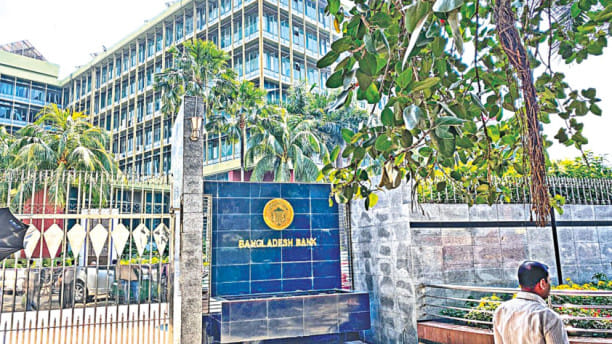Bangladesh Bank’s rules of export documents require an amendment

The open account trade means international trade against contract without any Letter of Credit (LC), which is mostly common in developed countries. Bangladesh was far behind from the open account trade transaction scheme in export. Our main competitors in readymade garments (RMG) export get competitive advantage of open account payment method in export.
Under section 23 of the Foreign Exchange Regulation Act (FERA), non-repatriation or partial repatriation is the responsibility of the exporter and failure is a punishable offence. The Bangladesh Bank (BB) also has the legal authority to exempt the affected exporters from the liability to repatriate the foreign proceeds by exercising the powers under section 12(2)(b) of the FERA, but the process is quite complicated. Another option is the BB's powers under section 12(3) of the FERA, to permit the affected exporters to sell the exported goods from the port of the buyer's country and procure the sale proceeds accordingly. However, the exporter can never realise the full value of the consignment for such consignment laying in the buyer's port. The process also involves port charges, demurrage, and container charges etc., and exporters usually do not get fair price for the exported materials.
In order to facilitate the export deal, two important transfers of ownership of consignment and payment rights are taken into consideration. One transfer is for consignment and the other is for payment or as consideration of the contract for export. The major concern of these contracts is transfer to document, which gives ownership of consignment and terms and methods of payment.
The BB has filled up this legal gap by issuing a circular no. 43 (dated November 17, 2019) titled "Discounting of direct or deemed export bills – transfer of right". It has granted general permission for assigning rights to dues at maturity of a usage bill of export from Bangladesh in favour of a license bank/financial institution abroad by paying usage bill in full, final, and without recourse.
The circular was issued in absence of Bangladeshi laws and policies in relation to such transfer of ownership on invoice. There is no interpretation of whether invoice or bill receivables is considered actionable claim, although under section 3 of the Transfer of Property Act, 1882, an actionable claim includes a claim to an unsecured debt.
According to paragraph 10(iii), chapter 8 of the Guidelines for Foreign Exchange Transactions (GFET), 2018, Vol. I, the Authorised Dealers (ADs) are required to pass all shipping documents covering exports from Bangladesh.
The BB circular no. 43 (dated November 17, 2019) has referred to instruction at para. 25, chapter 8 of the GFET, which also allowed the overseas correspondent institutions under subsection (b) stating that the ADs may arrange fund against the discounting of usage bills in foreign exchange through their own offshore banking units/correspondent banks, financial institutions abroad or international financing institutions. The circular has tried to get the coverage of payment repatriation against export under open account scheme. Under the open account method, goods are shipped on credit terms with payment commitments from banks/financial institutions abroad.
However, a FE circular no. 32 (dated October 03, 2021) authorised the ADs to allow exporters to dispatch export documents (excluding original transport document of title to cargo) directly to importers or their agents abroad through secured media, subject to observance of following instructions: (a) the underlying sales contracts/letters of credit provide for such direct dispatch of export documents; (b) the ADs shall be satisfied with the arrangement of realisation of export proceeds within statutory period; (c) the ADs shall endorse original transport document retained with them "on receipt of payment against relevant export"; (d) the ADs shall, within 14 days from the date of shipment, obtain EXP Form from exporters to comply with regulatory instructions including reporting routine to Bangladesh Bank; and (e) the exporters' account with the ADs is fully compliant with KYC/AML/CFT guidelines in force.
Although, the BB circular no. 43 (dated November 17, 2019) allowed the transfer of export documents to the bank or even export finance company such as Factoring companies, but the circular no. 32 (dated October 03, 2021) restricted the sending documents (i.e. Bill of Lading) without payment as the AD banks will have to retain the original shipping documents and endorse those on receipt of payments against the exports. It seems the BB is trying to facilitate the smooth transaction through open account – particularly the condition of pre-payment to release the Bill of Lading of the consignments.
Recently, the BB has allowed Factoring service with some conditions. Through international factoring, the exporters are guaranteed of payment of their goods and services instantly after shipment of the same. The Factoring services provide security of payment and financing through transfer of shipping documents along with ownership and rights over the payments. The circular no. 32 (dated October 03, 2021) restricting transfer of document will hamper smooth service of Factoring and export financing by trade finance companies. The BB should revisit the circular addressing the embargo over transfer of full set of documents.
THE WRITER IS LEGAL ECONOMIST.



 For all latest news, follow The Daily Star's Google News channel.
For all latest news, follow The Daily Star's Google News channel.
Comments